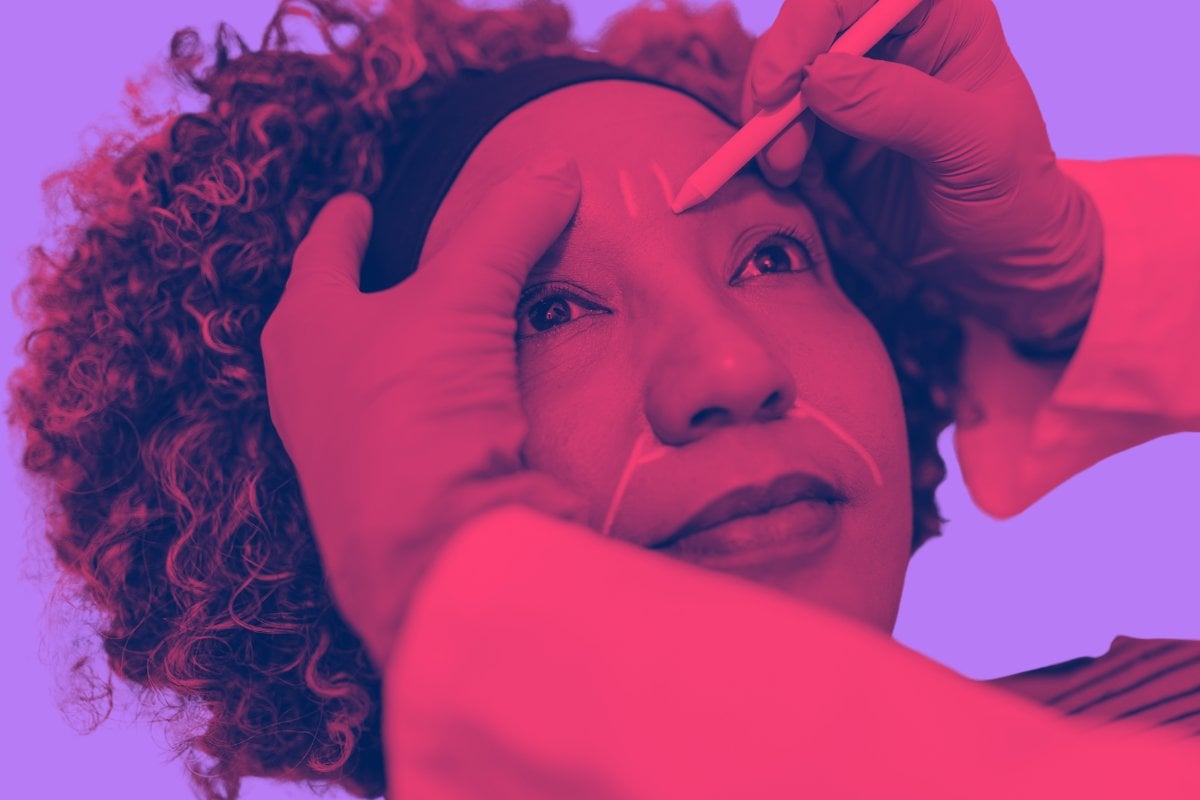
According to recent research, cosmetic surgery in Australia is booming. More than $1 billion is spent every year on more than 500,000 procedures, making it more popular per capita than the United States.
Which is... huge.
And while millennials are up there as one of the biggest demographics for cosmetic surgery, the findings show there's been a surge in procedures throughout a whole new demographic. A whopping forty-five per cent of Gen Xers (aged 43 to 58) and 28 per cent of Boomers (aged 59 to 77) account for cosmetic procedures in 2023 — and it's slowly climbing.
When it comes to specific procedures, it's been found that a greater proportion of Gen X are opting for a facelift than any other generation (25 per cent), suggesting a shift in the approach to aesthetic procedures of those entering middle age.
Baby boomers also scored high on the list, and were found to be the happiest about their cosmetic outcomes, with half (50 per cent) feeling "highly satisfied" with their surgery.
Now, thanks to a new targeted focus on this demographic, there appears to be one very strong trend cropping up — and it's been dubbed the next big thing in aesthetics.
It's called the 'menopause makeover.'
Watch: Welcome to The Very Peri Summit - expert advice for perimenopause. Post continues below.
Top Comments